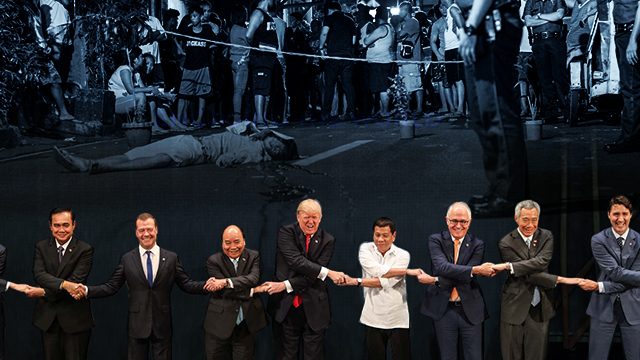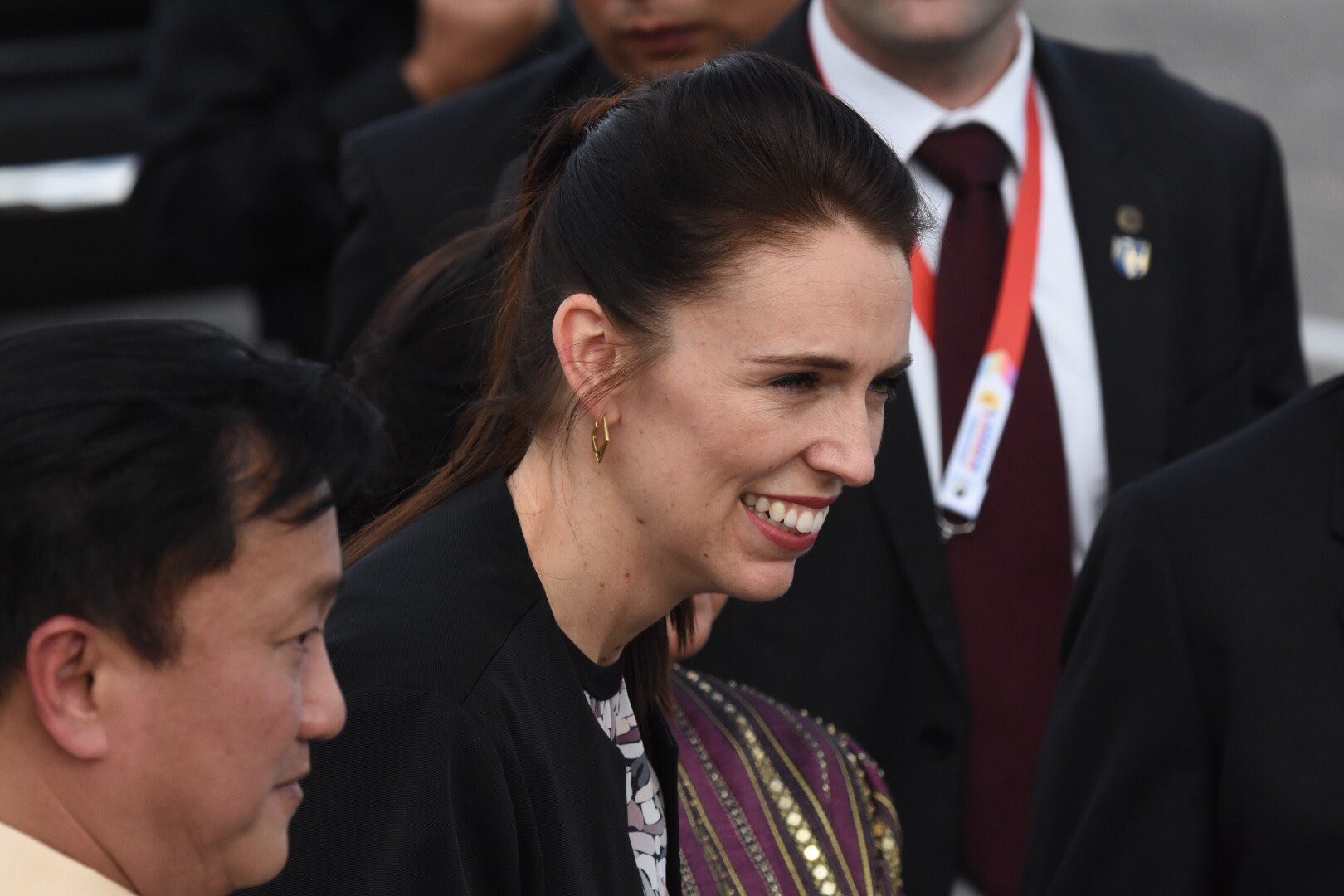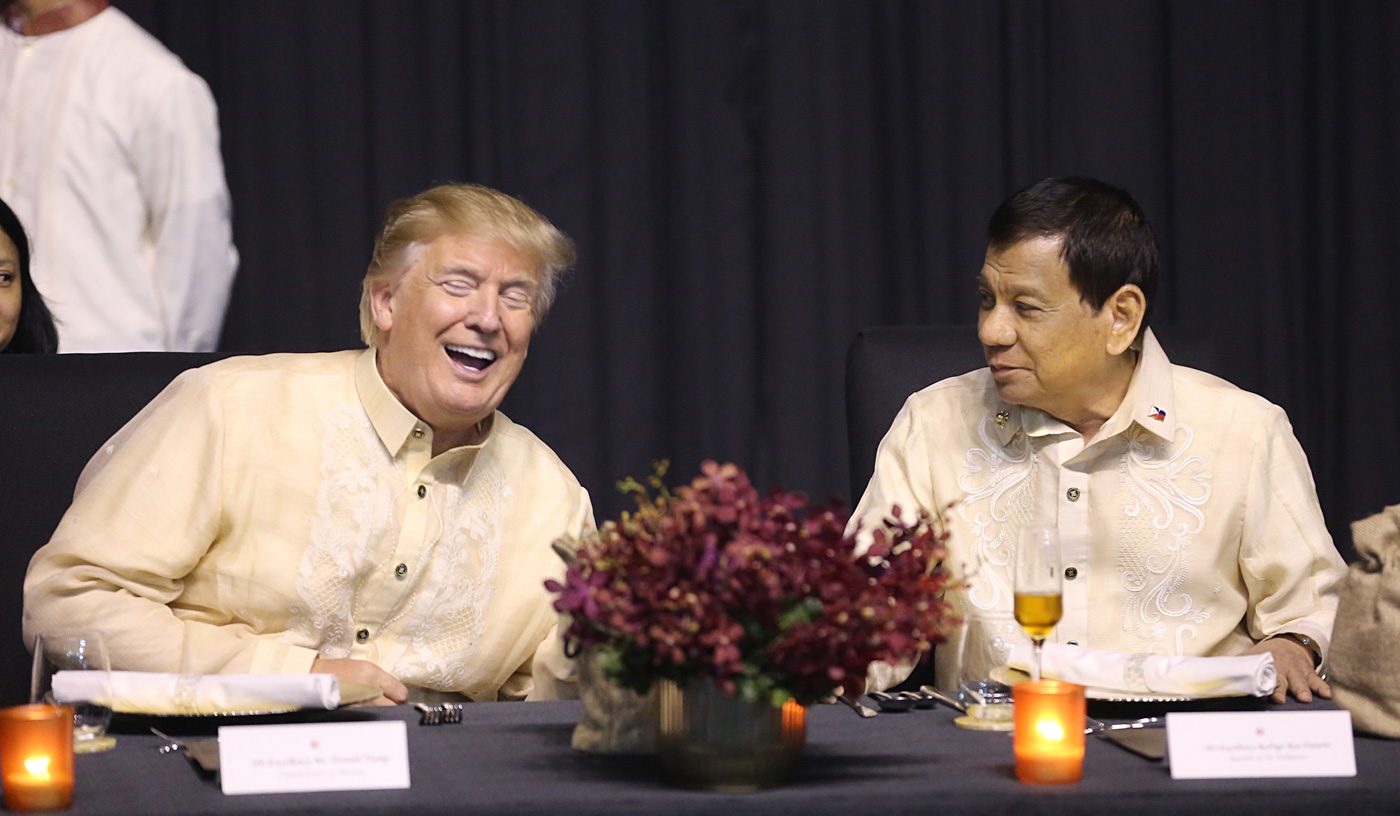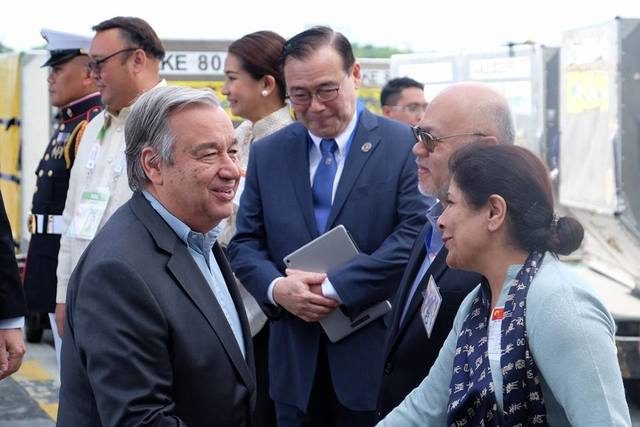SUMMARY
This is AI generated summarization, which may have errors. For context, always refer to the full article.

MANILA, Philippines – Human rights violations in President Rodrigo Duterte’s war on drugs was the elephant in the room as the Philippines hosted the 31st Summit of the Association of Southeast Asian Nations (ASEAN).
His violent anti-illegal drugs campaign has drawn criticism from both local and international communities, in particular the huge number of casualties in that war. Latest “official” data from the Philippine National Police (PNP) shows that at least 3,850 people have been killed in police operations, while at least 2,290 others were killed mostly by unknown vigilantes.
But Duterte has consistently responded with threats, while invoking Philippine independence – whether to slap or place on the immigration blacklist individuals who dare criticize his campaign. (READ: U.S. lawmakers to Duterte: ‘Sovereignty doesn’t give gov’ts free rein to kill’)
In fact, before the ASEAN Summit, the President said that he will tell US President Donald Trump or any other leader to “lay off” if human rights and the drug war is brought up in meetings, adding that it is none of their business.
But that didn’t stop some world leaders from raising these concerns in either their meetings with Duterte or in the various functions within the Summit. As of Tuesday afternoon, November 14, 4 attendees had already made known their thoughts on human rights and the drug war, although in varying degrees:
Prime Minister Justin Trudeau
Canada
Trudeau was more specific and categorical when he discussed human rights in the context of the drug war with Duterte. (READ: Trudeau tells Duterte: Canada ‘concerned’ over EJKs)
During his press conference on Tuesday, November 14, Trudeau recalled mentioning to Duterte “human rights, rule of law, specifically extrajudicial killings as an issue that Canada is concerned with.”
“Canada has earned a reputation for being able to have a strong, sometimes frank, sometimes firm discussions on rule of law and human rights with partners around the world. It’s very much what people expect of Canada,” he said.
The Canadian Prime Minister also said, “Canada is not perfect. In our talk with President Duterte, we expressed concern on human rights, EJKs, and impressed upon him the importance of rule of law,” he said. “We also expressed help to address the real challenge.”
Prime Minister Jacinda Ardern
New Zealand

Ardern sought accountability for the number of deaths linked to Duterte’s war on drugs. (READ: NZ’s Ardern: PH drug war deaths ‘require investigation’) On Tuesday, November 14, Ardern told the press pool that the killings merit “investigation and oversight.”
“Our view is that the number of deaths certainly requires investigation and oversight at the very least,” she said. “There have been attempts from the international community as my understanding [but] those have not been accepted.”
The Prime Minister said she would raise human rights as an issue during her bilateral meeting with Duterte scheduled late Tuesday.
“As we have done in the past we, like many countries, take a view [on] the policies he has rolled out when it comes to managing the issues of drugs within the Philippines. Certainly it would be the concern of any country – that level of death as a consequence of that policy,” Ardern said.
President Donald Trump
United States

While it was discussed in their first bilateral meeting, the joint statement released by Trump and Duterte on Monday, November 13, did not directly mention human rights in the context of the controversial drug war. (READ: Duterte, Trump agree ‘dignity of human life essential’)
“The two sides underscored that human rights and the dignity of human life are essential, and agreed to continue mainstreaming the human rights agenda in their national programs to promote the welfare of all sectors, including the most vulnerable groups,” the joint statement said.
On the drug war, the two “acknowledged that illegal drug use is a problem afflicting both countries and committed to share best practices in the areas of prevention; enforcement, including capacity-building and transparency in investigations; and rehabilitation.”
The statement, however, contradicted Philippine Presidential Spokesperson Harry Roque’s claim that human rights was not discussed at the bilateral meeting. (READ: Philippines, U.S. give conflicting statements on Duterte-Trump meeting)
Secretary-General Antonio Guterres
United Nations

Guterres of the United Nations (UN), one of the bodies severely targeted by Duterte’s tirades since July 2016, emphasized the need to strengthen human rights watchdogs in the region. (READ: Duterte curses UN)
He did not specifically refer to the drug war killings which various UN bodies had criticized in the past.
“In line with the 2030 agenda and Sustainable Development Goals, the principles of democratic governance, rule of law and respect for human rights, the United Nations stands ready to cooperate with you in strengthening the ASEAN Inter-government Commission on Human Rights,” he said during his opening remarks at the 9th ASEAN-UN Summit on Monday, November 13.
The statement comes from some citizens of most, if not all, of ASEAN member-states that are experiencing some form of oppression by their own governments – happening while human rights has consistently been out of the regional bloc’s priorities. (READ: The deafening silence of ASEAN on human rights violations) – Rappler.com
Add a comment
How does this make you feel?
There are no comments yet. Add your comment to start the conversation.